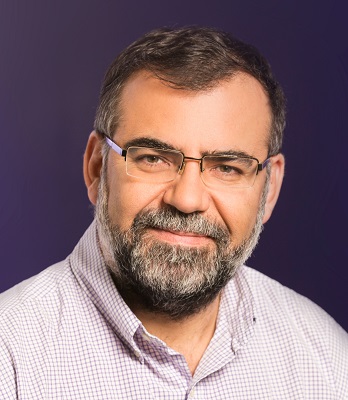
Bio:
Ricardo Baeza-Yates areas of expertise are information retrieval, web search and data mining, data science and algorithms. He is currently a Professor at Northeastern University, Silicon Valley campus, since August 2017. He is also CTO of NTENT, a semantic search technology company based in California since June 2016. Before he was VP of Research at Yahoo Labs, based in Sunnyvale, California, from August 2014 to February 2016. Before he founded and led from 2006 to 2015 the Yahoo labs in Barcelona and Santiago de Chile. Between 2008 and 2012 he also oversaw Yahoo Labs in Haifa, Israel, and started the London lab in 2012. He is part time Professor at the Dept. of Information and Communication Technologies (DTIC) of the Universitat Pompeu Fabra (UPF), in Barcelona, Spain, as well as at the Dept. of Computing Science (DCC) of Universidad de Chile in Santiago. During 2005, he was an ICREA research professor at UPF. Until 2004 he was Professor and founding director of the Center for Web Research at Universidad de Chile. He obtained a Ph.D. in CS from the University of Waterloo, Canada, in 1989. Before he obtained two masters (M.Sc. CS & M.Eng. EE) and the electronics engineer degree from the University of Chile in Santiago. He is co-author of the best-seller Modern Information Retrieval textbook, published in 1999 by Addison-Wesley with a second enlarged edition in 2011, which won the ASIST 2012 Book of the Year award. He is also co-author of the 2nd edition of the Handbook of Algorithms and Data Structures, Addison-Wesley, 1991; and co-editor of Information Retrieval: Algorithms and Data Structures, Prentice-Hall, 1992, among more than 600 other publications. Within ACM he was the Chilean site director of the regional ACM Programming Contest and member of the South American steering committee from 1998 to 2005. Later he was member of the ACM Publications Board from 2007 to 2009 and of the ACM European Council from 2010 to 2014. Finally, he was elected to the ACM Council from July 2012 to June 2016. From 2002 to 2004 he was elected to the board of governors of the IEEE Computer Society. He has received the Organization of American States award for young researchers in exact sciences (1993), the Graham Medal for innovation in computing given by the University of Waterloo to distinguished ex-alumni (2007), the CLEI Latin American distinction for contributions to CS in the region (2009), and the National Award of the Chilean Association of Engineers (2010), among other distinctions. In 2003, he was the first computer scientist to be elected to the Chilean Academy of Sciences and since 2010 is a founding member of the Chilean Academy of Engineering. In 2009, he was named ACM Fellow and in 2011 IEEE Fellow.
Available Lectures
To request a single lecture/event, click on the desired lecture and complete the Request Lecture Form.
-
Bias and the Web
The Web is the most powerful communication medium and the largest public data repository that humankind has created. Its content ranges from great reference sources such as Wikipedia to ugly fake...
-
Big Data or Right Data? Opportunities and Challenges
Big data nowadays is a fashionable topic, independently of what people mean when they use this term. But being big is just a matter of volume, although there is no clear agreement in the size...
-
Distributed Web Search
In the ocean of Web data, Web search engines are the primary way to access content. As the data is on the order of petabytes, current search engines are very large centralized systems based on...
-
Ethics in AI: A Challenging Task
In the first part we cover current specific challenges: (1) discrimination (e.g., facial recognition, justice, sharing economy, language models); (2) phrenology (e.g., biometric based...
- Information Retrieval
This tutorial covers all the main concepts behind search: relevance, retrieval models, quality evaluation, indexing and ranking. At the same time, we explain all the elements of the architecture...- Responsible AI
In the first part we cover five current specific problems that motivate the needs of responsible AI: (1) discrimination (e.g., facial recognition, justice, sharing economy, language models); (2)...- Semantic Search
Semantic search lies in the cross roads of information retrieval and natural languageprocessing and is the current frontier of search technology. The first part consists in...- Web Data Mining
The Web continues to grow and evolve very fast, changing our daily lives. This activity represents the collaborative work of the millions of institutions and people that contribute content to the...To request a tour with this speaker, please complete this online form.
If you are not requesting a tour, click on the desired lecture and complete the Request this Lecture form.
All requests will be sent to ACM headquarters for review.
- Information Retrieval
